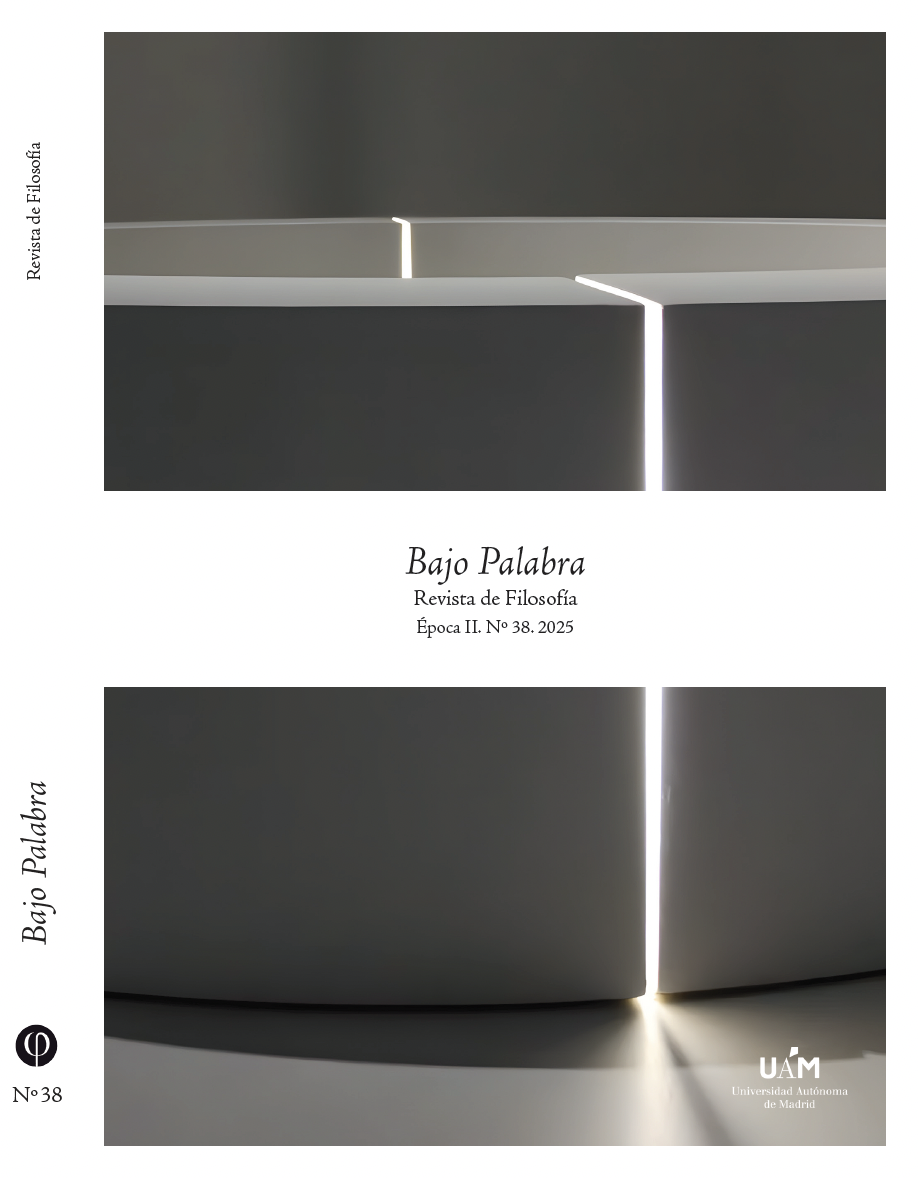Keywords:
Disaffection, Politics, Aristotle, Representative crisis, Sovereignty crisis, Participation crisisCopyright (c) 2025 Iván De los Ríos Gutiérrez

This work is licensed under a Creative Commons Attribution 4.0 International License.
Abstract
What does “political disaffection”mean? Is it true that contemporary societies are scenarios full of democratic detachment and ruined affections? Starting from the supposed omnipresent presence of political disaffection in our democracies, we will try to clarify in what precise sense of the word “politics” we are emptied (legitimately) of involvement, esteem and appreciation and in what sense we are not at all. After clarifying that current political disaffection is mainly linked to politics understood as the activity of the ruling class, we will defend that democratic power is compatible with political disaffection against the political class because it does not necessarily imply a detachment from democracy and its configuring power. We will ask ourselves in what way our democracies are threatened by political disaffection and in what sense this disaffection can stimulate, paradoxically, the political dimension of the human animal (non-negotiable) and the democratic power of our current societies (updatable again and again).
Downloads
References
Aristóteles, Política, trad. de M. García Valdés, Gredos, Madrid, 1988.
Aristóteles, Investigación sobre los animales, trad. y notas de J. Pallí Bonet, Madrid, Gredos, 1992.
Aristóteles, Acerca del alma, trad. de T. Calvo, Gredos, Madrid, 1999.
Aristóteles, Ética a Nicómaco, trad. y notas de José Luis Calvo Martínez, Alianza, Madrid, 2005.
Berti, E., El pensamiento político de Aristóteles, Madrid, Gredos, 2012.
Castoriadis, C., Lo que hace a Grecia. 1. De Homero a Heráclito, trad. de S. Garzonio. FCE, Buenos Aires, 2006; Lo que hace a Grecia II. La ciudad y las leyes, trad. de H. Pons, FCE, Buenos Aires, 2014.
García Marzá, D., “El valor democrático de la sociedad civil: una respuesta a la desafección”, en: THÉMATA. Revista de Filosofía, nº 52, 2015, pp. 93-109. https://doi.org/10.12795/themata.2015.i52.05
Grene, M., “Aristotle and Modern Biology”, en: Journal of the History of Ideas, vol. 33, nº. 3 (jul.- sep., 1972), pp. 395-424. https://doi.org/10.2307/2709043
Habermas, J., Historia y crítica de la opinión pública. La transformación estructural de la vida pública, trad. de A. Doménech, Gustavo Gili, Barcelona, 2002.
Heródoto, Historia, trad. de Carlos Schrader García, Gredos, Madrid, 1992.
Isócrates, Discursos, trad. de J. M. Guzmán Hermida, Gredos, Madrid, 1982.
Laval, C. y Dardot, P., Común. Ensayo sobre la revolución en el siglo XXI, trad. de A. Díez, Gedisa, Barcelona, 2015.
Liddel, H. G., R. Scott y H. Stuart Jones, A Greek-English Lexicon, Oxford, 9ª ed. 1940, (reimpr. 1966).
Madorrán Ayerra, C., “Democracia: grietas y rutas de una idea irrenunciable”, en: Revista Filosofía &Co, nº 9 (junio 2024), pp. 32-53.
Mayr, E., ¿Por qué es única la biología? Consideraciones sobre la autonomía de una disciplina científica, Katz, Buenos Aires, 2006.
Real Academia Española, Diccionario de la lengua española, 23.ª ed. [versión 23.7 en línea]. <https://dle.rae.es> [04/07/2024].
Subirats, J. y Rendueles, C. Los (bienes) comunes. ¿Oportunidad o espejismo?, Barcelona: Barcelona, 2016.
Tucídides, Historia de la Guerra del Peloponeso, trad. de J. J. Torres, Madrid, Gredos, 1990.

